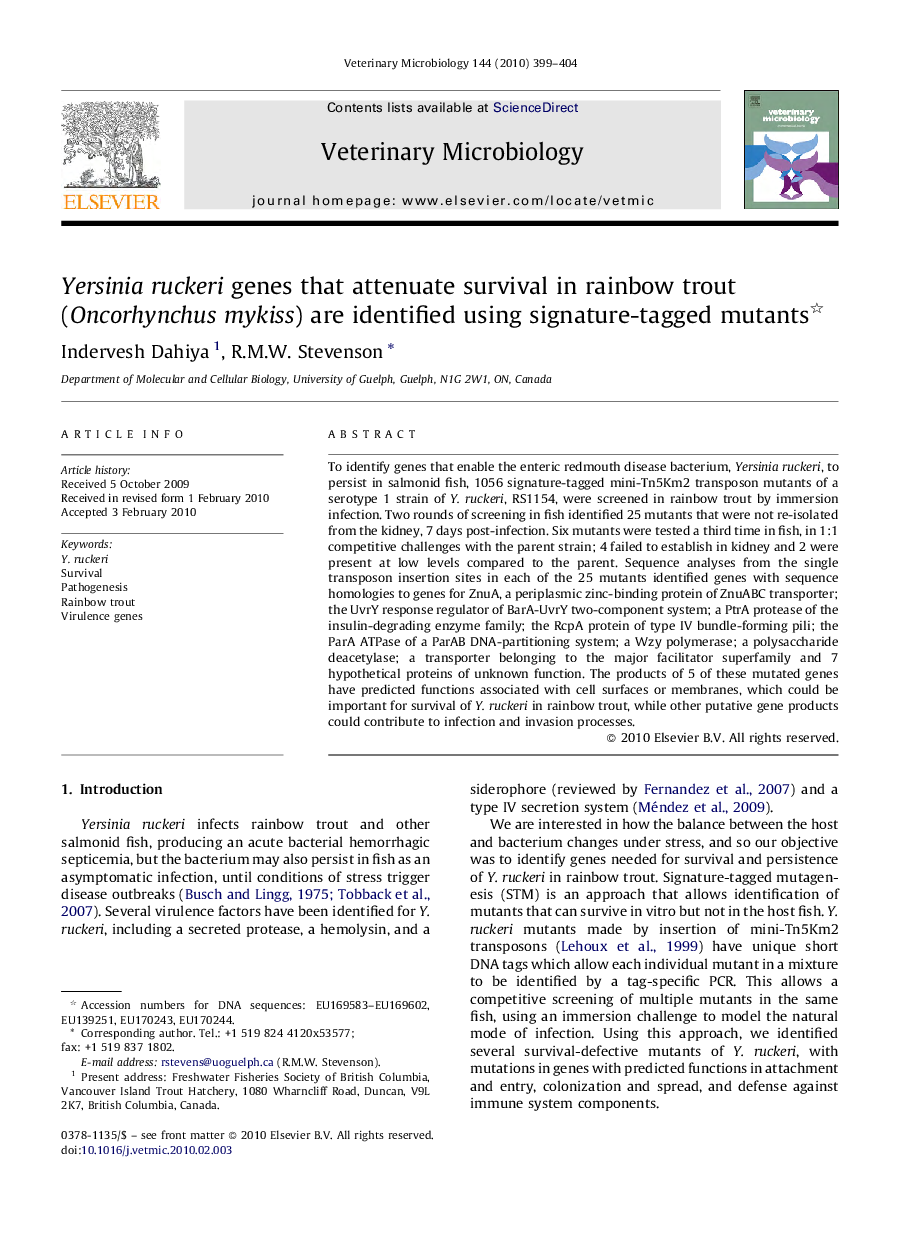| Article ID | Journal | Published Year | Pages | File Type |
|---|---|---|---|---|
| 2468032 | Veterinary Microbiology | 2010 | 6 Pages |
To identify genes that enable the enteric redmouth disease bacterium, Yersinia ruckeri, to persist in salmonid fish, 1056 signature-tagged mini-Tn5Km2 transposon mutants of a serotype 1 strain of Y. ruckeri, RS1154, were screened in rainbow trout by immersion infection. Two rounds of screening in fish identified 25 mutants that were not re-isolated from the kidney, 7 days post-infection. Six mutants were tested a third time in fish, in 1:1 competitive challenges with the parent strain; 4 failed to establish in kidney and 2 were present at low levels compared to the parent. Sequence analyses from the single transposon insertion sites in each of the 25 mutants identified genes with sequence homologies to genes for ZnuA, a periplasmic zinc-binding protein of ZnuABC transporter; the UvrY response regulator of BarA-UvrY two-component system; a PtrA protease of the insulin-degrading enzyme family; the RcpA protein of type IV bundle-forming pili; the ParA ATPase of a ParAB DNA-partitioning system; a Wzy polymerase; a polysaccharide deacetylase; a transporter belonging to the major facilitator superfamily and 7 hypothetical proteins of unknown function. The products of 5 of these mutated genes have predicted functions associated with cell surfaces or membranes, which could be important for survival of Y. ruckeri in rainbow trout, while other putative gene products could contribute to infection and invasion processes.
